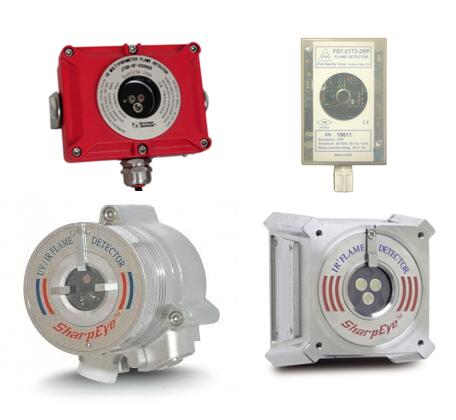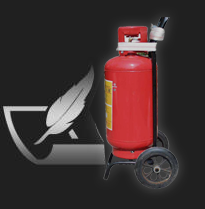
Organizations that manufacture, transport, and store lithium (ion) batteries are also not considered immune from fire accidents. Thermal runaway incidents have also caused some large-scale fires in many facilities that store lithium (ion) batteries. These fires have a particularly large impact because the large number of lithium (ion) batteries usually stored in these facilities will further accelerate the spread of the fire.
In most cases, mechanical damage to the battery can be a high risk factor for a thermal runaway (fire / explosion) event. Improper handling of the battery may cause it to be crushed or punctured, which may cause leakage or short circuit of the electrolyte material. These conditions can lead to thermal runaway and fire and / or explosion.
FM Global and the NFPA Fire Research Foundation released data related to the flammability characteristics of lithium-ion batteries in storage. The report details the tests performed on large-scale fires of lithium-ion batteries in warehouse storage, a breakthrough study of batteries in fire accidents. Test results seem to confirm the following:
Because these products contain flammable electrolytes, lithium-ion batteries present several unique fire hazards in a fire.
Dense lithium-ion cylindrical batteries and polymer batteries behave differently from lithium-ion batteries in this fire.
When lithium batteries are stored in bulk in corrugated cardboard boxes, early fire suppression and cooling of lithium-ion batteries is necessary to properly protect the facility.
Existing protection solutions for other types of high-risk products and materials can effectively protect large-capacity lithium-ion batteries.
Activities still have their limitations. One obvious limitation is that it has only tested small-capacity 18650 batteries. 18650 batteries are commonly used in electronic equipment (considered AA size). Higher-capacity batteries (such as those used in electric vehicles, energy storage, and other configurations) also need to be tested for combustion because the combustion characteristics and consequences of these batteries can be far different. The challenges that large-capacity batteries pose to fire management cannot be ignored.
NFPA and other standard-setting organizations have not completed formal standards and guidelines for managing battery fire issues, but existing storage and transportation strategies can be used to help manage fire risk. Finding a professional company specializing in lithium battery fire management and suppression is a good start. These companies are different from general fire suppression system designers and fire engineering contractors because they are proficient in unique storage and fire risk containment methods that are closely related to lithium battery fire issues and have corresponding risk management practices.
SCIC to extinguish the fire. Based on this consideration, an effective method is to install the battery storage in an environment with a cooling fire suppression system. A good way to extinguish lithium ion (secondary) batteries is to cool the burning materials; lithium batteries (containing metal lithium) require a separate fire extinguishing method.
This is essential for EHS. It is also worth noting that the lithium battery is isolated from other production facilities through external storage or remote storage. The battery storage yard should allow off-site storage, and just-in-time delivery can be made when needed by the user.
As mentioned above, batteries are almost an integral part of business society and personal life; they are closely related to everyone's life. Therefore, any organization and individual should be aware of the unique hazards these batteries may bring. Companies with a large number of lithium batteries should cooperate with experts to develop relevant training to reduce the occurrence of fire accidents and ensure additional safety protection measures. These trainings may involve awareness of battery hazards, or they may include more detailed contextual training such as battery fire characteristics, emergency response procedures and the use of fire extinguishing facilities (focus on lithium-ion batteries). This type of training will help protect lives and property.
Dense lithium-ion cylindrical batteries and polymer batteries behave differently from lithium-ion batteries in this fire.
When lithium batteries are stored in bulk in corrugated cardboard boxes, early fire suppression and cooling of lithium-ion batteries is necessary to properly protect the facility.
Existing protection solutions for other types of high-risk products and materials can effectively protect large-capacity lithium-ion batteries.
Activities still have their limitations. One obvious limitation is that it has only tested small-capacity 18650 batteries. 18650 batteries are commonly used in electronic equipment (considered AA size). Higher-capacity batteries (such as those used in electric vehicles, energy storage, and other configurations) also need to be tested for combustion because the combustion characteristics and consequences of these batteries can be far different. The challenges that large-capacity batteries pose to fire management cannot be ignored.
NFPA and other standard-setting organizations have not completed formal standards and guidelines for managing battery fire issues, but existing storage and transportation strategies can be used to help manage fire risk. Finding a professional company specializing in lithium battery fire management and suppression is a good start. These companies are different from general fire suppression system designers and fire engineering contractors because they are proficient in unique storage and fire risk containment methods that are closely related to lithium battery fire issues and have corresponding risk management practices.

As a company that can truly provide you with total solutions for fire protection and safety systems, we often help customers provide installation services for fire protection systems for new or retrofit projects.

Address: 58 Huanghe South Street, Huanggu District, Shenyang City Mobile: 18624031197 (Manager Gao) Telephone: +86 24 3191 8231
Email: sales@taidi-china.com
Home | About | Product | Service | News | Contact
Copyright Shenyang Taidi Electromechanical Equipment Co., Lt Liao ICP No.15003691 Copyright ©2019 All Rights Reserved.